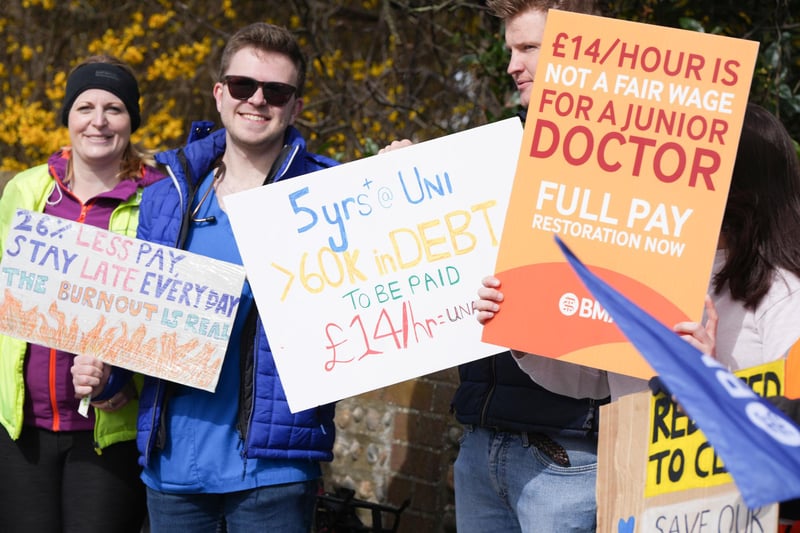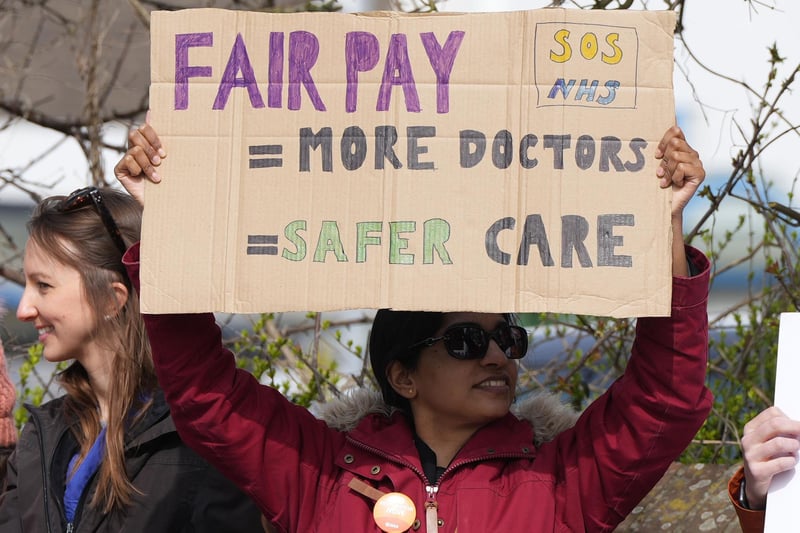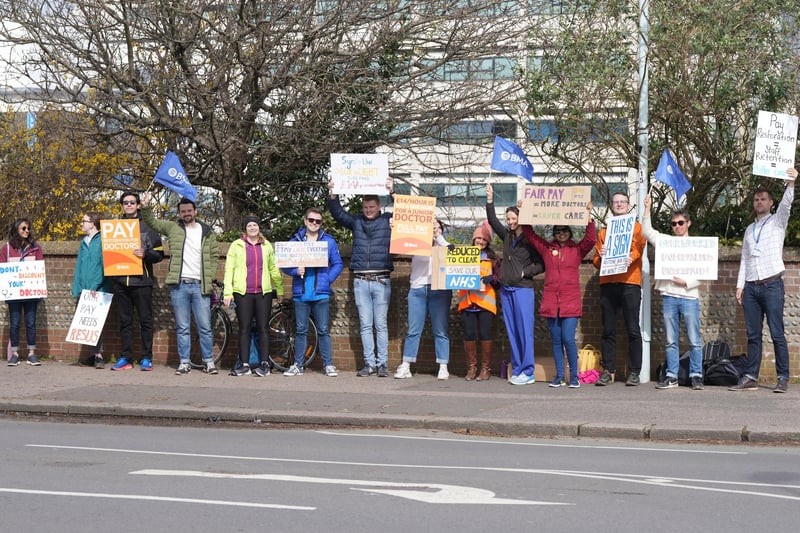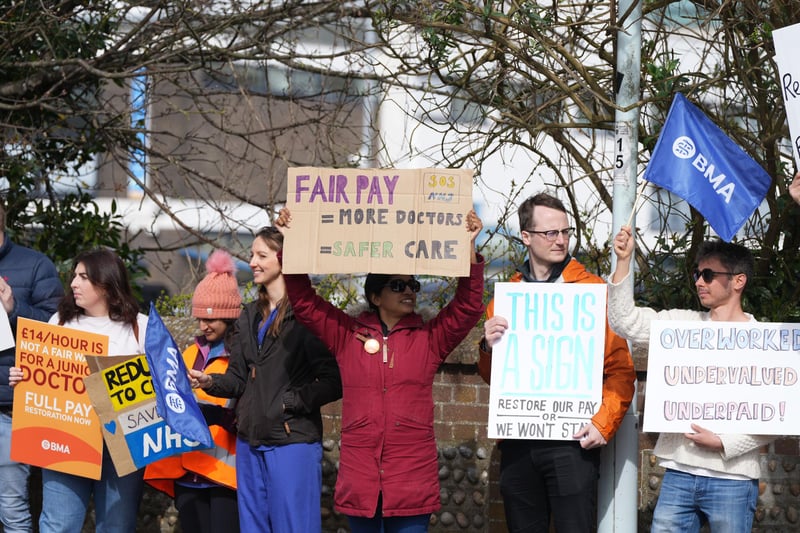The second round of junior doctor strikes started at 7am today (Tuesday, April 11) and will continue through until Friday, April 14.
The British Medical Association (BMA) said it is holding the 96-hour walkout in order to achieve a full pay restoration to reverse the ‘steep decline’ in pay faced by junior doctors since 2008/2009.
Professor Sir Stephen Powis – the national medical director for the NHS in England – said that it had been a challenging bank holiday weekend for hospitals in England and that the industrial action by junior doctors would bring ‘immense pressure’ on services.
The strike action will not end until the morning of Saturday (April 15) making it ‘the most extensive action on record’.
Professor Sir Powis said: “The NHS has been preparing extensively for the next set of strikes but managing additional pressure doesn’t get easier as time goes by – it gets much more difficult – not only due to the sheer number of appointments that need to be rescheduled but also that they can take time to rearrange with multiple teams involved.
“This is set to be the most disruptive industrial action in NHS history, and the strikes tomorrow will bring immense pressures, coming on the back of a challenged extended bank holiday weekend for staff and services. Emergency, urgent and critical care will be prioritised but some patients will unfortunately have had their appointments postponed – if you haven’t, please do continue to come forward.
“As ever, use 999 and A&E for life threatening emergencies but use NHS 111 online for all other health conditions.”
BMA explained that it is also hoping to agree on a mechanism with the Government to prevent any future declines against the cost of living and inflation, while also aiming to reform the Doctors' and Dentists' Review Body process so pay increases can be recommended independently and fairly to safeguard the recruitment and retention of junior doctors.
NHS England said junior doctors ‘make up around half’ of all doctors in the NHS – they are qualified doctors who have anywhere up to eight years’ experience working as a hospital doctor, depending on their specialty, or up to three years in general practice.
A spokesperson added: “To make sure safe care continues to be available for those in life-threatening situations, NHS staff will be asked to prioritise emergency and urgent care over some routine appointments and procedures.
“Appointments and operations will only be cancelled where unavoidable and patients will be offered an alternative date as soon as possible.
“The NHS has said that people who need care must still access the care they need in the usual way – only using 999 and A&E in life-threatening emergencies and using NHS 111 online and other services for non-urgent health needs.”
The NHS said pharmacies and GPs are ‘largely unaffected’ by the strikes, so patients ‘can still get appointments and health advice’.
Have you read?: Yellow wind warning issued for parts of Sussex: 'Some delays to road, rail, air and ferry transport are likely'

1. Junior doctors walk-out in West Sussex
Junior doctors send defiant messages on picket line outside Worthing Hospital Photo: Eddie Mitchell

2. Junior doctors walk-out in West Sussex
Junior doctors send defiant messages on picket line outside Worthing Hospital Photo: Eddie Mitchell

3. Junior doctors walk-out in West Sussex
Junior doctors send defiant messages on picket line outside Worthing Hospital Photo: Eddie Mitchell

4. Junior doctors walk-out in West Sussex
Junior doctors send defiant messages on picket line outside Worthing Hospital Photo: Eddie Mitchell